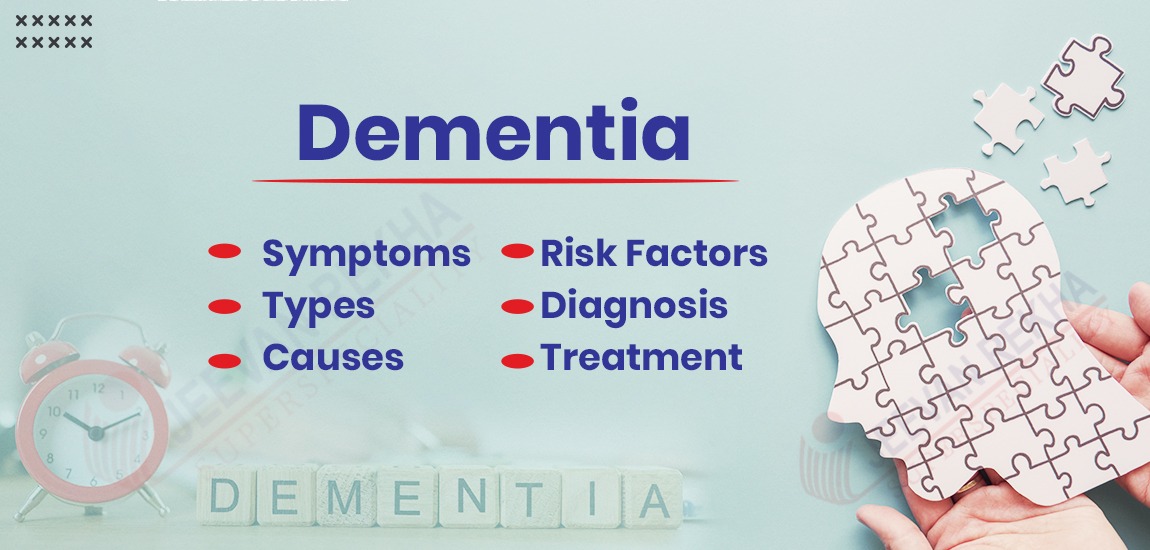Dementia, characterized by the decline in cognitive functioning, disrupts crucial aspects of daily life, including thinking, remembering, and reasoning. This condition goes beyond mere memory lapses and can lead to profound changes in a person’s emotions and personality. Its impact spans a spectrum from mild impairment, where it subtly begins to affect functioning, to severe stages where individuals require complete dependence on others for basic daily activities like feeding.
While dementia is prevalent among older populations, affecting millions worldwide, it’s important to note that it is not an inherent aspect of aging. Although the likelihood of experiencing dementia increases with age (with approximately one-third of individuals aged 85 or older potentially affected), it is not an inevitable consequence of growing older. Numerous individuals live well into their 90s and beyond without exhibiting any signs of dementia, highlighting the variability in cognitive aging experiences.
There are several different forms of dementia, including Alzheimer’s disease, which is the most common.
What are the signs and symptoms of dementia?
Indications and manifestations of dementia emerge when formerly robust neurons (nerve cells) within the brain cease their normal functioning, sever connections with other brain cells, and ultimately succumb. Though neuron loss is a natural part of aging for everyone, those grappling with dementia undergo a significantly heightened degree of such loss.

The signs and symptoms can vary depending on the type and may include:
Experiencing memory loss, poor judgment, and confusion
Difficulty speaking, understanding and expressing thoughts, or reading and writing
Wandering and getting lost in a familiar neighbourhood
Trouble handling money responsibly and paying bills
Repeating questions
Using unusual words to refer to familiar objects
Taking longer to complete normal daily tasks
Losing interest in normal daily activities or events
Hallucinating or experiencing delusions or paranoia
Acting impulsively
Not caring about other people’s feelings
Losing balance and problems with movement
People with intellectual and developmental disabilities can also develop dementia as they age, and in these cases, recognizing their symptoms can be particularly difficult. It’s important to consider a person’s current abilities and to monitor for changes over time that could signal dementia.
What causes dementia?
Dementia arises from alterations in specific regions of the brain, leading to dysfunction in neurons and their connections. Scientists are delving into the correlation between these brain changes and distinct forms of dementia, seeking to unravel the reasons behind their occurrence in certain individuals. A handful of cases have been linked to uncommon genetic variations responsible for triggering dementia.
While the prevention of dementia remains uncertain, maintaining a healthy lifestyle is posited as a potential means to mitigate risk factors.
What are the different types of dementia?
Multiple neurodegenerative conditions and diverse factors play a role in the onset of dementia, leading to a gradual and irreversible decline in both neurons and brain functionality. As of now, there exists no cure for any form of dementia.

Types of dementia include:
Alzheimer’s disease
the predominant dementia diagnosis among seniors, results from cerebral changes marked by abnormal accumulations of proteins called amyloid plaques and tau tangles.
Frontotemporal dementia
a rare variant striking individuals under 60, is linked to unusual levels or configurations of tau and TDP-43 proteins.
Lewy body dementia
stemming from anomalous deposits of the alpha-synuclein protein (Lewy bodies), stands out as another distinct form of dementia.
Vascular dementia
arising from conditions that harm brain blood vessels or disrupt blood and oxygen flow, represents a different facet of dementia.
Mixed dementia, a fusion of two or more dementia types, has been identified through post-mortem studies. Researchers discovered that many individuals with dementia exhibited a combination of brain alterations associated with different forms of dementia.
Conclusion
Scientific investigations are delving into the inception of underlying disease processes in diverse dementia types and their interplay. Researchers are also delving into an array of disorders and disease processes contributing to dementia. For instance, recent autopsy studies led to the characterization of a new dementia type called LATE. Enhanced comprehension of dementia’s root causes will empower researchers to grasp these conditions better and formulate more personalized prevention, treatment, and care approaches.
Read More:- Calendula Flower: A Flowing Plant Aiding In Restoring Skin Health!
Read More:-Exploring the Multifaceted World of Tea: Unearthing Its Unexpected Effects
